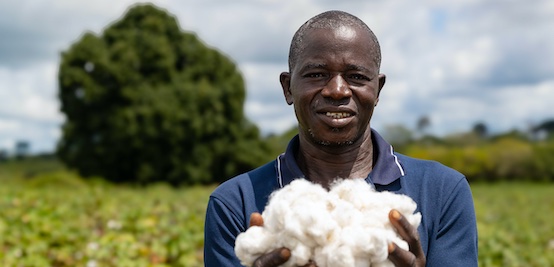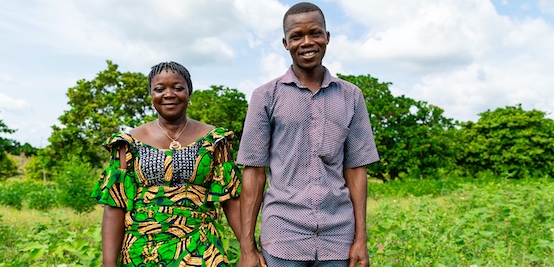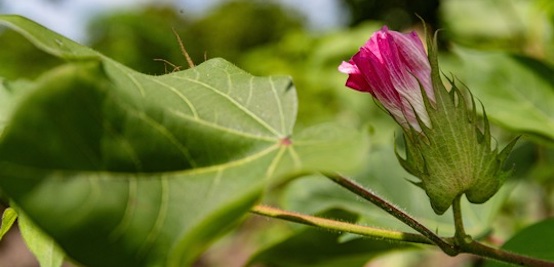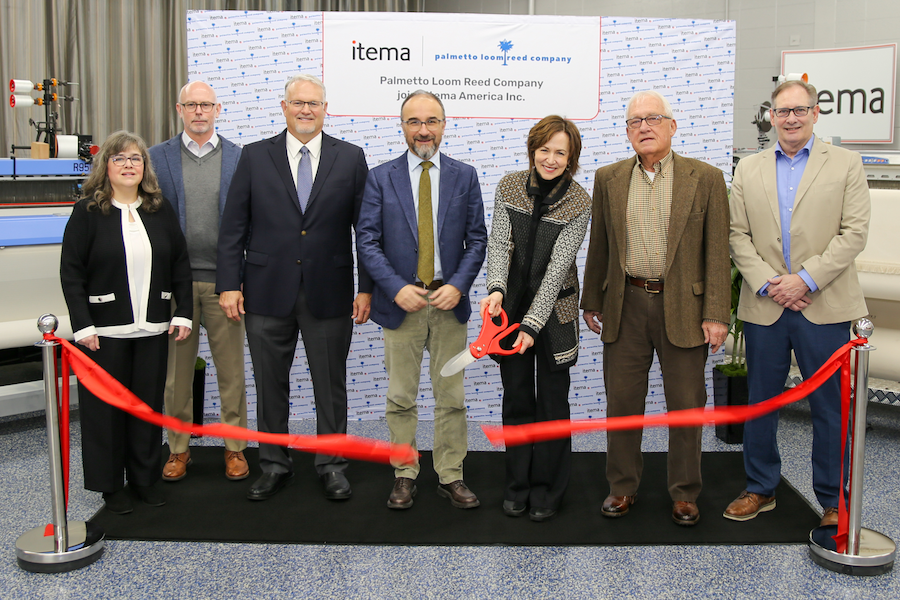#Raw Materials
EUR 2.8 million project for climate-resilient agriculture in Africa
The CAR-iSMa project (in full: “Climate Adaptation and Resilience – A Pan-African Learning & Knowledge Exchange Project on Improved Soil Management”) ends with impressive outcomes. In Côte d’Ivoire, the project’s demonstration fields achieved crop yields of up to 37 percent higher than fields without soil optimisation measures. In addition, following a poor 2022/2023 harvest due to pest damage, the participating Ivorian farmers recorded an average increase in yield from 272 to 1,007 kilograms per hectare in the 2023/2024 season, which resulted in an average increase in income of EUR 509.

“It speaks for itself that far more than our target number of 100,000 small-scale farmers chose to be trained in the theory and practice of regenerative and climate-resilient agriculture,” says Tina Stridde, the managing director of the Aid by Trade Foundation, adding, “In this project, we worked together with scientists, agricultural experts, and small-scale farmers to bring compost and biochar to the fields and to assess the feasibility of applying carbon credits to small-scale cotton production. We investigated new ways to secure good prospects of a stable income for small-scale farmers and their families, even in times of climate change.”
Climate-Resilient Agriculture: Creating Opportunities Through Compost, Biochar, and Carbon Credits
In the course of the project, AbTF focussed on practical measures for improving soil quality, responsible water use, and biodiversity conservation as a basis for greater resilience in small-scale agriculture. “For us, this project reinforced a more resilient way of working with farmers. We are now integrating many of these techniques into our core operations and exploring the potential for carbon farming initiatives, using the tested regenerative soil practices as a strong foundation,” explains Ivans Trigo Popinsky, Director of Production at SAN-JFS, a cotton company from Mozambique involved in the CAR-iSMa project. In addition to trainings and workshops, feasibility studies on carbon sequestration were conducted to assess the potential of different soil improvement methods. In the long term, these findings could open up new sources of income through carbon credits in small-scale cotton cultivation.
Getting Results: Regenerating Soil, Preserving Biodiversity, Empowering Women
Over the span of three years, international and interorganisational meetings were held with local farmers and partners to test and share knowledge on the production and effects of compost, biochar, and bokashi as well as erosion control techniques and soil cultivation methods. Project activities also addressed strategic crop rotation, crop diversification, cover crops, tree planting, and integrated production and pest management (IPPM). In parallel, innovative training materials were developed to ensure that awareness-raising efforts can continue long after the project’s end. Finally, it is especially gratifying to see women in all project regions now serving as role models, spreading the project’s innovative ideas, and becoming involved in compost production, which provides a new source of income in many cases.
Having been launched as an initiative of the Aid by Trade Foundation, CAR-iSMa was funded by BMZ (the German Federal Ministry for Economic Cooperation and Development) in collaboration with GIZ (Deutsche Gesellschaft für Internationale Zusammenarbeit) as part of its Sub-Saharan Cotton Initiative. The project was implemented together with the agricultural group LDC Suisse and over the complete project duration with locally operating cotton companies in Côte d’Ivoire, Zambia and Mozambique
















